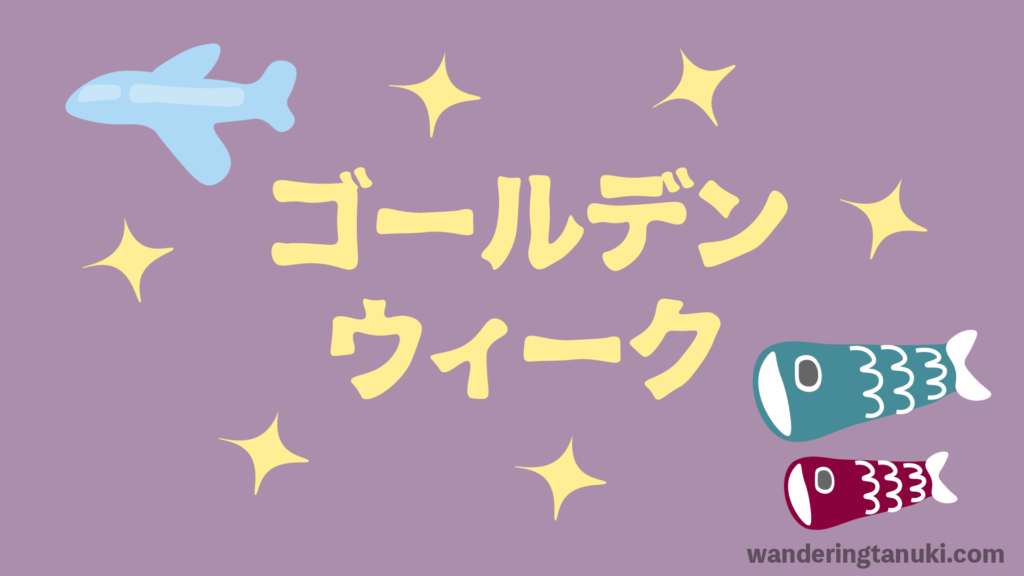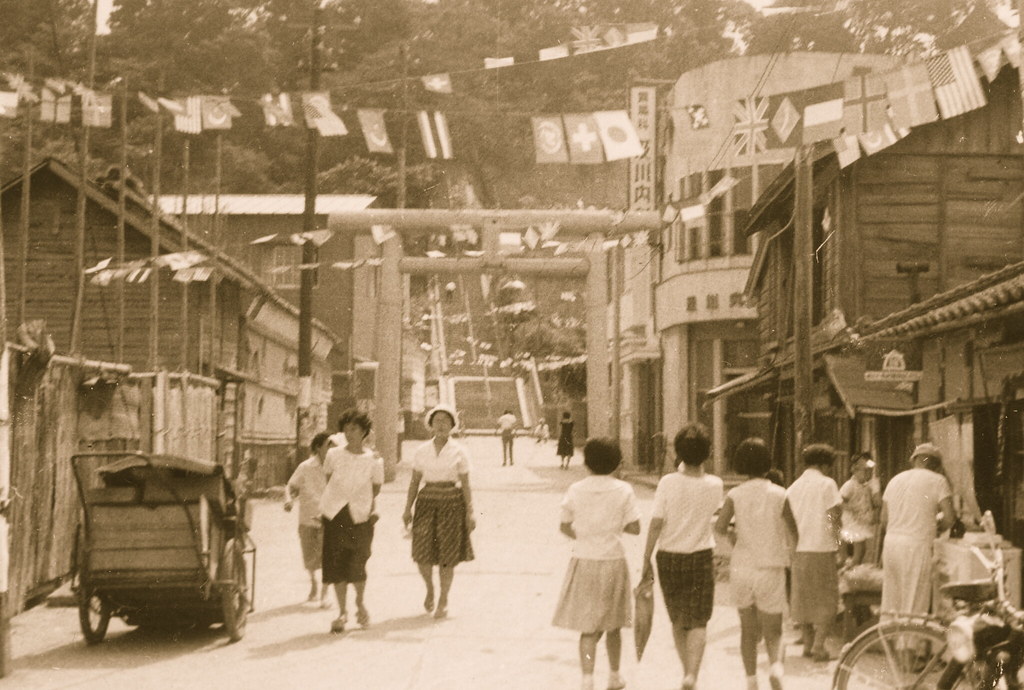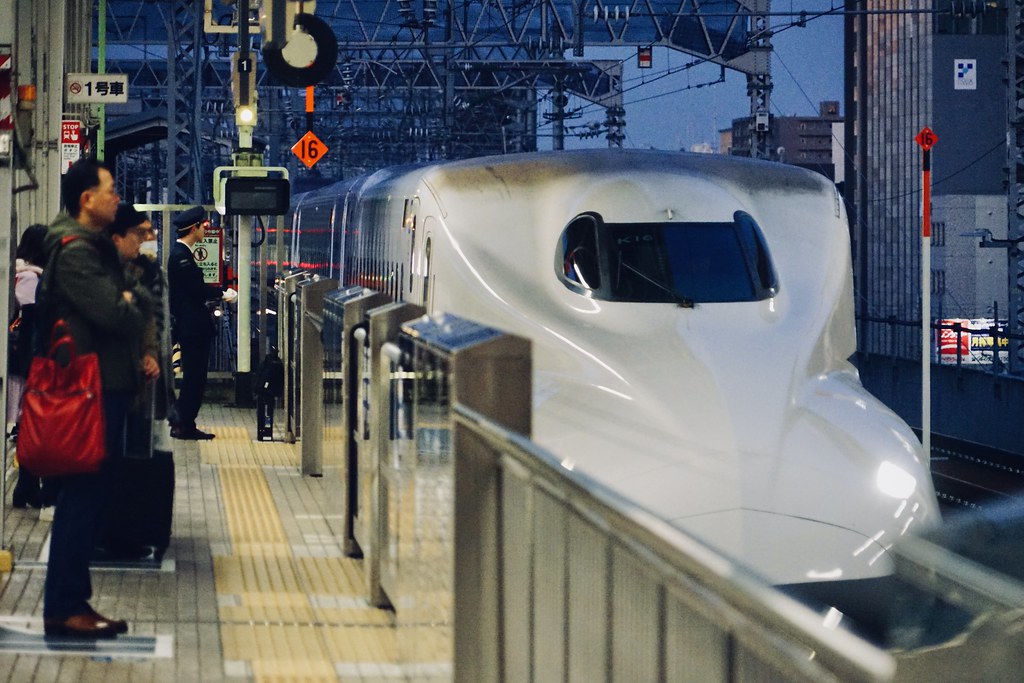What is Golden Week in Japan?
Golden week in Japan is like the Spring break for the whole nation! Even if you’ve heard the term before, you might not know exactly what it means. Golden week, also known as oogata renkyuu, is a time period from around April 29th until May 5th.
During this time, there are numerous national holidays, and it’s common practice to schedule days off in between. The holidays and days off create a week-long vacation period. Depending on the year, golden week can be longer if it includes weekends.

Brief History of Golden Week
History:
In 1948, the government enacted a law for official national holidays. These holidays are currently April 29th – Shouwa no Hi (Day of Showa), May 3rd – Kenpou Kinenbi (Constitutional Memorial Day), May 4th – Midori no Hi (Green Day), and May 5th – Kodomo no Hi (Children’s Day). Due to numerous holidays, people started to schedule their days off in between to create a longer vacation.
In the past, this period was often called a tobi ishi renkyuu meaning “jumping rocks holidays” since it was difficult to get a continuous vacation. There would be holidays and work days mixed together. For this reason, most people would spend the holiday like any other weekend.
In recent times, additional laws have ensured that when holidays fall on Sunday it would be reimbursed onto another day. Companies are also more lenient and will often provide vacations on May 1st. Nowadays, many people are able to get a solid vacation week. It’s popular to go on longer domestic and international vacations.
Where the term comes from:
The term “Golden Week” is a marketing phrase from the 50’s. The movie company, Daiei, successfully marketed a movie called Jiyuu Gakkou. Due to the popularity of the movie, the phrase “Golden Week” was cemented into the Japanese culture.
Since the phrase comes from the movie industry, some national broadcast stations consider this an unofficial phrase. Instead, they will call “Golden Week”, Oogata Renkyuu meaning “long vacation/holidays”.
The national holidays that make up Golden Week:
Golden Week is made up of four distinct national Japanese holidays. Here is some information on what they are:
Showa Day – 昭和の日 (April 29th)

This is the day of the Showa era emperor’s birthday. The Showa period was between 1926 and 1989. Japan had an immense amount of political change at this time, including the end of WW2 and democratic reforms.
There was a surge of economic prosperity after the 1950’s. Showa day is meant to be a holiday to reflect on the extraordinary recovery of the nation and hope for the future.
Constitution Memorial Day – 憲法記念日 (May 3rd)

Japan celebrates May 3rd for its constitution. On this day, the Japanese Navy decorate their ships with flags from different countries. In addition, the public talks about the reforms that should be made to the current constitution.
Green Day – みどりの日 (May 4th)

A fitting holiday for the spring, Green Day celebrates the appreciation for nature and an open world view. It was named after the Showa emperor’s love of plants and nature.
Children’s Day – こどもの日 (May 5th)

This is the most traditional holiday of Golden Week originating from the imperial holiday called Tango no Sekku. In the past, it was named Boy’s day because girls would celebrate Hinamatsuri on March 3rd.
At present, both genders celebrate the holiday and it is about the children’s happiness and appreciation for mothers. You’ll see traditional decorations called koinobori which are carp fish banners, samurai paper helmets, and special foods like kashiwa mochi.
What do Japanese people do during Golden Week?
Since most people can take extended holidays, there are many possibilities for golden week.

International travel
Since the 1990’s, international travel has become popular during Golden Week. Some popular vacation spots include Hawaii or Guam. Traditional holidays like Obon or New Years expect people to stay in the country visiting relatives. However, Golden Week has more flexibility with how you can spend it.
Visiting hometowns
Domestic travel, especially going back to hometowns is popular. Many people who are working in large cities like Tokyo, move from smaller towns. The long holiday is a great time to go back and see family. The long distance trains get extremely crowded during this time.
Family time with Children
The media covers families travelling during Golden Week at airports and train stations. There are always large numbers of families with children going on vacation. Because of this, Golden Week has an image of a holiday for close family and children.
Exploring Nature
There are also many festivals around this time celebrating trees and flowers. In the northern regions, Golden Week coincides with the blooming of cherry blossoms. In other parts of Japan, you can enjoy the new leaves sprouting on trees called shinryoku.
Some problems with Golden Week:
You might wonder why anyone has problems with a long holiday. However, some people think that the holidays should be spread apart. The long holidays can make it harder to return to your daily work life. After the holidays many people report that they have physical and mental health problems.
In addition, there have been complaints that there is no real meaning to the holidays compared to more traditional celebrations. The other major problems include the crowding of tourist spots, traffic, and long distance transportation.
I hope that this article cleared up any confusions about Golden Week in Japan! If you find yourself in Japan during Golden week make sure to enjoy it to the fullest. If you’re interested in other Japanese culture blog content, be sure to check out The meaning of Wabi Sabi: Japanese art aesthetic or Important Milestone Birthdays in Japan
~ Tanuki





